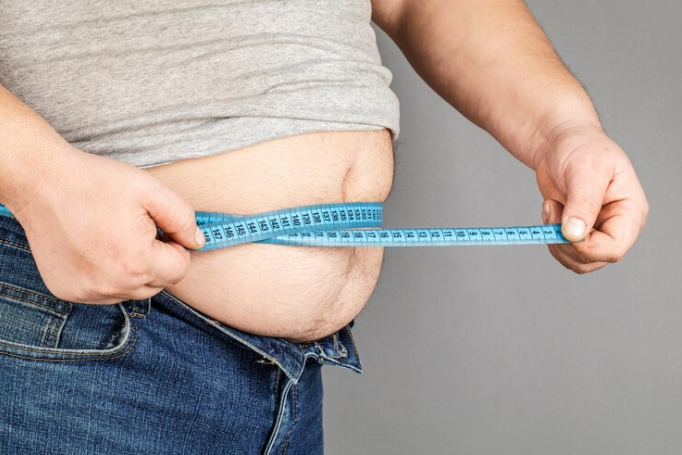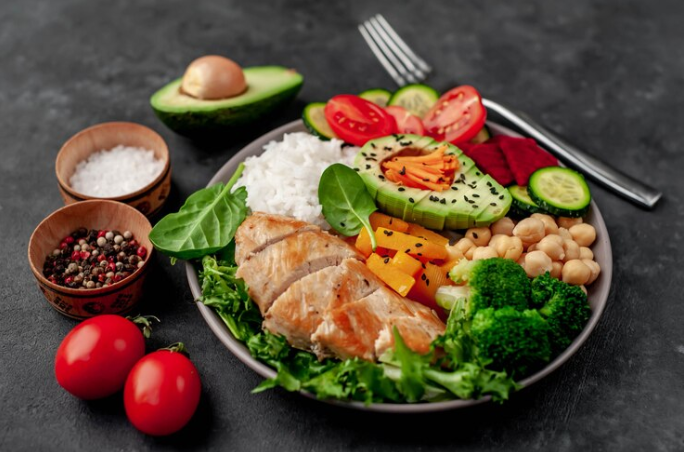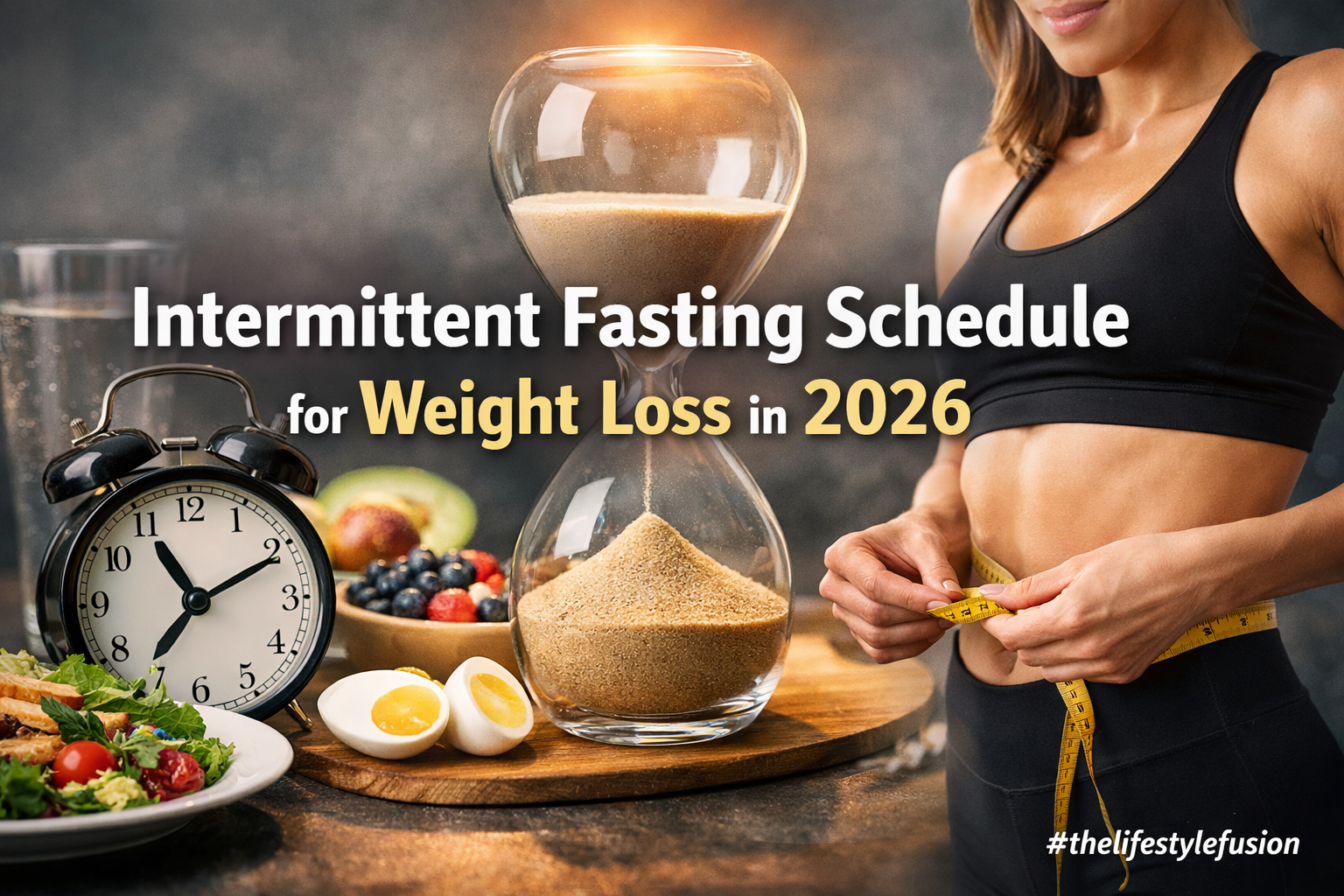The menopause diet 5 day plan to lose weight is essential during this significant transition in a woman’s life, often accompanied by a host of physical and emotional changes. One of the most common concerns during this time is weight gain, particularly around the abdomen.
The hormonal fluctuations during menopause can make it challenging to maintain a healthy weight, but with the right dietary approach, it is possible to manage and even lose weight.
This blog will guide you through a carefully crafted the menopause diet 5 day plan to lose weight and shed those extra pounds and feel your best. Don’t let stubborn weight hold you back and make you feel ashamed of your body.
Understanding Menopause and Weight Gain

Before diving into the diet plan, it’s essential to understand why weight gain occurs during menopause. The primary culprits are imbalanced hormones, particularly the decline in estrogen levels, which can lead to an increase in body fat, especially around the midsection. Additionally, age-related factors such as a slower metabolism decreased muscle mass, and lifestyle changes can contribute to weight gain.
However, weight gain during menopause isn’t inevitable. By adopting a well-balanced diet tailored to your needs, you can manage your weight effectively.
The Menopause Diet: Key Principles

The menopause diet 5 day plan to lose weight focuses on nutrient-dense foods that support hormone balance, boost metabolism, and promote overall health. Here are some key principles to follow:
1. Balance Macronutrients
Aim for a balanced intake of carbohydrates, proteins, and fats. Each meal should include lean protein, healthy fats, and fiber-rich carbohydrates to keep you full and satisfied. This approach aligns with healthy eating for weight loss, ensuring that you maintain energy levels while promoting effective and sustainable weight management.
2. Stay Hydrated
Drinking plenty of water is crucial for maintaining a healthy metabolism and supporting overall well-being. Aim for at least 8-10 glasses of water daily to keep your body hydrated. Adequate water intake aids in digestion, helps flush out toxins, and keeps your skin healthy. Proper hydration also supports energy levels and cognitive function. Ensuring you drink enough water is a simple yet vital step toward optimal health.
3. Prioritize High-Protein and Low-Carb:
Focus on a high-protein, low-carb diet to support muscle maintenance and efficient metabolism. Protein sources like lean meats, fish, eggs, legumes, and plant-based proteins are crucial for preserving muscle mass. Simultaneously, incorporate fiber-rich, low-carb foods such as whole grains, fruits, vegetables, and legumes to aid digestion and help control blood sugar levels, promoting overall health and weight management.
4. Include Healthy Fats
Incorporating healthy fats, like omega-3 fatty acids, into your diet can significantly benefit your health. These fats, found in foods such as fish, nuts, and seeds, are known for their anti-inflammatory properties. By reducing inflammation, omega-3s contribute to improved heart health and overall well-being. Regular consumption of these healthy fats can help lower the risk of chronic diseases and support better cardiovascular function. Including them in your diet promotes long-term health and vitality.
5. Limit Sugar and Processed Foods
Reducing your intake of sugary snacks, beverages, and processed foods is essential for effective weight management and overall health. These items often contain empty calories that contribute to weight gain and can lead to various health problems, including insulin resistance and metabolic syndrome. By cutting back on these foods, you can help maintain stable blood sugar levels and support a healthier diet. Choose whole, nutrient-dense foods to nourish your body and promote long-term wellness. Making these changes will enhance your overall health and help you achieve your weight loss goals.
The Menopause Diet 5 Day Plan to Lose Weight

The menopause diet 5 day plan to lose weight is designed to kickstart your weight loss journey during menopause. Each day includes breakfast, lunch, dinner, and snacks that are easy to prepare, delicious, and packed with nutrients.
Day 1:
Breakfast:
-
- Greek yogurt with mixed berries and a sprinkle of chia seeds
-
- A small handful of almonds
Lunch:
-
- Grilled chicken salad with mixed greens, avocado, cherry tomatoes, and olive oil dressing
-
- A side of quinoa
Snack:
-
- Apple slices with almond butter
Dinner:
-
- Baked salmon with roasted Brussels sprouts and sweet potatoes
- A side of steamed broccoli
Why It Works:
This day’s meals are rich in protein, healthy fats, and fiber, keeping you full and satisfied while supporting muscle mass and metabolism.
Day 2:
Breakfast:
-
- Oatmeal topped with flaxseeds, walnuts, and fresh blueberries
-
- A boiled egg
Lunch:
-
- Lentil soup with a side of whole-grain bread
-
- A mixed green salad with olive oil and lemon dressing
Snack:
-
- Carrot sticks with hummus
Dinner:
-
- Stir-fried tofu with mixed vegetables (bell peppers, broccoli, and carrots) over brown rice
- A side of miso soup
Why It Works:
This day focuses on plant-based proteins and fiber-rich foods, which are excellent for digestion and maintaining steady blood sugar levels.
Day 3:
Breakfast:
-
- Smoothie with spinach, banana, almond milk, and protein powder
-
- A slice of whole-grain toast with avocado
Lunch:
-
- Grilled turkey breast wrap with whole-grain tortilla, spinach, tomatoes, and mustard
-
- A side of mixed berries
Snack:
-
- Greek yogurt with a handful of nuts
Dinner:
-
- Grilled shrimp with a quinoa and black bean salad, dressed with lime and cilantro
- A side of steamed asparagus
Why It Works:
This day’s meals are high in protein and include healthy fats and fiber, supporting muscle maintenance and promoting a feeling of fullness.
Day 4:
Breakfast:
-
- Scrambled eggs with spinach and tomatoes
-
- A side of whole-grain toast with a small portion of cottage cheese
Lunch:
-
- Grilled chicken and avocado salad with mixed greens, cucumber, and olive oil dressing
-
- A side of roasted sweet potato wedges
Snack:
-
- Sliced bell peppers with guacamole
Dinner:
-
- Baked cod with a side of quinoa and roasted vegetables (zucchini, carrots, and onions)
- A side of mixed greens with a balsamic vinaigrette
Why It Works:
This day emphasizes lean proteins and a variety of vegetables, providing essential vitamins and minerals while supporting weight loss.
Day 5:
Breakfast:
-
- Chia seed pudding made with almond milk, topped with raspberries and a drizzle of honey
-
- A boiled egg
Lunch:
-
- Grilled salmon with a kale and farro salad, dressed with lemon and olive oil
-
- A side of roasted beetroot
Snack:
-
- A small handful of mixed nuts
Dinner:
-
- Turkey and vegetable stir-fry with brown rice noodles
- A side of steamed green beans
Why It Works:
This day’s menu is rich in antioxidants, healthy fats, and lean protein, supporting overall health and aiding in weight management.
5 Effective Tips for Success

To maximize the benefits of this free menopause diet plan to lose weight, consider the following tips:
1. Exercise Regularly
Incorporate both cardio and strength training exercises into your routine. Exercise not only helps with weight loss but also improves mood and reduces the risk of chronic diseases.
2. Get Enough Sleep
Aim for 7-9 hours of quality sleep each night. Poor sleep can lead to weight gain and other health issues, especially during menopause.
3. Manage Stress
Chronic stress can lead to weight gain, particularly around the abdomen. Practice stress-reducing techniques such as meditation, yoga, or deep breathing exercises.
4. Stay Consistent
Weight loss during menopause may take time, so it’s important to stay consistent with your diet and exercise routine.
5. Monitor Portion Sizes
Be mindful of portion sizes, especially when it comes to high-calorie foods. Eating smaller, more frequent meals can help control hunger and prevent overeating.
Conclusion
Losing weight during menopause can be challenging, but it’s entirely possible with the right approach. The menopause diet 5 day plan to lose weight is designed to help you manage your weight while providing the nutrients your body needs during this transition.
By following the principles of balanced nutrition, regular exercise, and healthy lifestyle habits, you can achieve your weight loss goals and feel your best during menopause. Remember, consistency is key, and small, sustainable changes can lead to long-term success.






